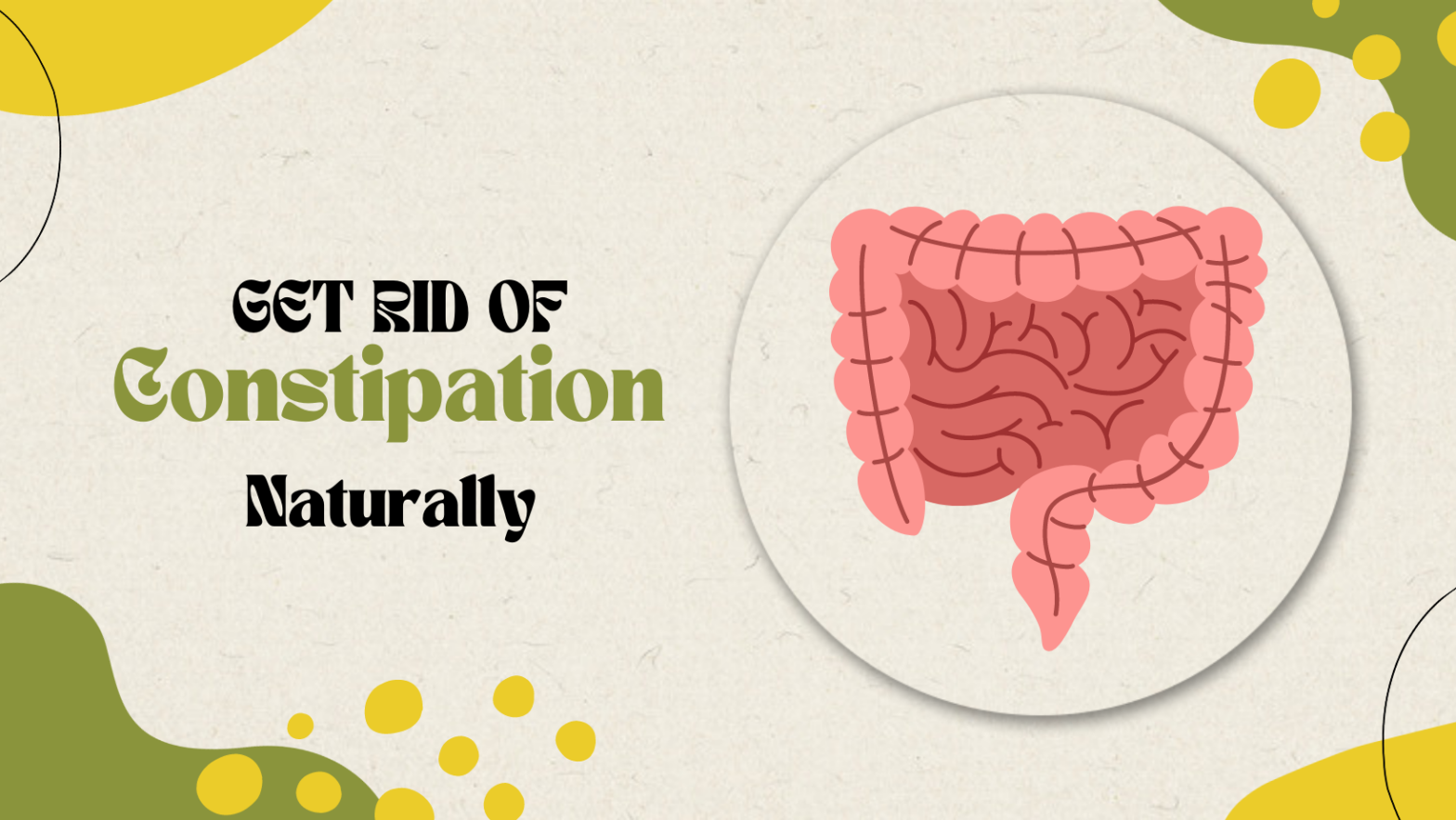Have you been having difficulties with constipation? If that’s the case, you’re not alone. Constipation is a very common problem, and there are many ways to treat it naturally. In this blog post, we will discuss the best methods for getting rid of constipation without using medications. We will also provide some helpful tips for preventing constipation in the future. So if you are looking for a natural way to get relief from your constipation symptoms, keep reading!
What Is Constipation?
Constipation is a condition in which there is difficulty passing stools or having a bowel movement. There may be hard, dry stools that are difficult to pass, or there may be fewer than three bowel movements in a week. Constipation can cause bloating, abdominal pain, and rectal bleeding. If you are constipated for more than a week, you should see your doctor.
Symptoms Of Constipation
If you’re constipated, you may have fewer than three bowel movements a week. You may also have hard stools or stools that are difficult to pass. Other symptoms of constipation include feeling bloated and feeling like you need to have bowel movements but not being able to do so.
There are many possible causes of constipation, including a change in diet or lifestyle, medications, and medical conditions. Some people may be more prone to constipation than others.
Constipation is usually not a serious condition, but it can be uncomfortable. If you’re constipated for more than a week or two, see your doctor.
Types Of Constipation
There are three types:
Functional constipation
Organic constipation
Chronic
Functional Constipation:
It is a symptom, not a disease, and is caused by factors such as diet, lifestyle, or medications.
Organic Constipation:
It is caused by a physical disorder, such as intestinal blockage.
Chronic Constipation:
Chronic constipation, also called obstipation, is a condition in which you have fewer than three bowel movements a week.
The Best Methods
There are many ways to get rid of constipation, both medical and natural. However, the best method depends on the type of constipation you have.
Remedies For Constipation Relief
The best way to treat it naturally is to start with diet and lifestyle changes. Add more fiber to your diet by eating whole grains, fruits, and vegetables. Make sure you drink a lot of fluids, especially water. And get regular exercise. If these measures don’t relieve your constipation, try a natural laxative such as psyllium husk or magnesium citrate.
Psyllium husk is a type of dietary fiber that’s sold as a supplement. It works by absorbing water and stool softeners. This makes it easier to pass stools and can help relieve constipation. Magnesium citrate is a laxative that works by drawing water into the intestines, which helps to soften stools.
Lemon Water
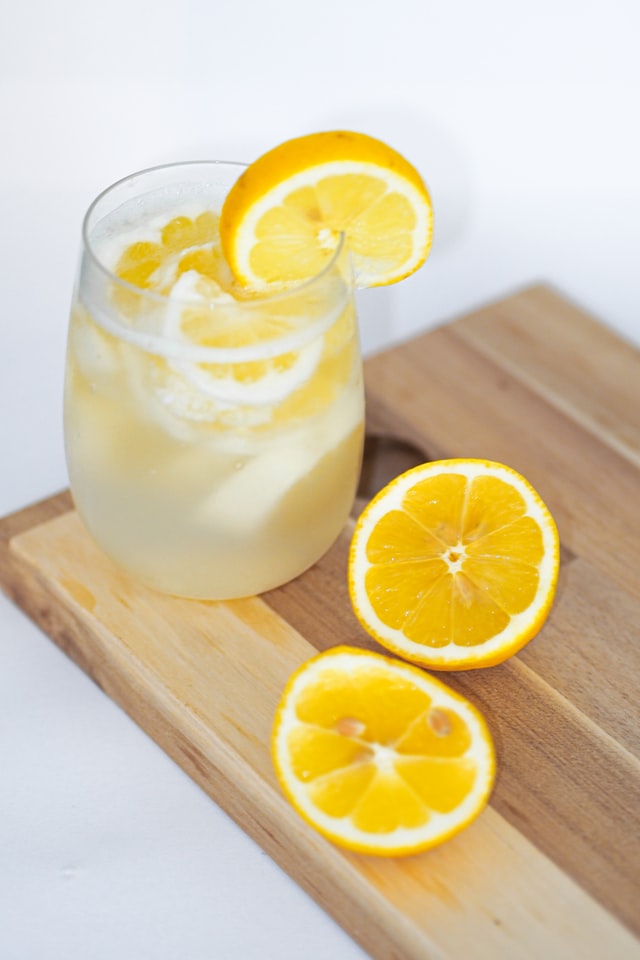
It is a great way to start your day or drink it throughout the day. It will help to keep you hydrated and also stimulate your digestive system. Adding lemon to your water can also help to relieve constipation.
You can also try drinking prune juice, which is a natural laxative. Start with just a small amount, such as a quarter cup, and increase it as needed. You can also try eating prunes or dried plums.
Healthy Fats
There are two types of fiber:
Soluble fiber
Insoluble fiber
Both are important for healthy digestion.
Soluble Fiber:
It dissolves in water and helps to form a gel-like substance that keeps things moving through the digestive tract.
Insoluble Fiber:
It doesn’t dissolve in water but it does absorb water, which helps to add bulk to the stool and prevents constipation.
Fiber Supplements:
Instead of taking fiber supplements, one can take natural fiber-rich foods which are found in fruits, vegetables, and whole grains, and it helps to add bulk to the stool, making it easier to pass. In addition, fiber stimulates peristalsis, the contractions that push stool through the intestines.
As a result, a diet high in fiber is often very effective in relieving constipation. However, it is important to increase fiber intake gradually, as too much fiber can make constipation worse. And while fiber is a safe and natural remedy, it is always important to speak to a doctor if it persists or is accompanied by other symptoms.
Probiotics
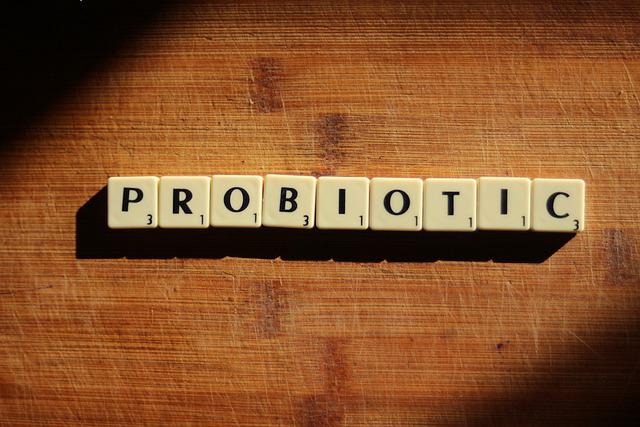
Probiotics are live microorganisms that offer a range of health benefits, including relief from constipation. When taken regularly, probiotics can help to increase the number of helpful bacteria in the gut, which can in turn help to ease constipation and improve overall gut health.
Probiotics are found in a variety of food sources, such as yogurt and fermented foods, and are also available in supplement form. If you’re considering taking probiotics for constipation relief, be sure to talk to your doctor first to ensure they’re right for you.
Oats For Constipation
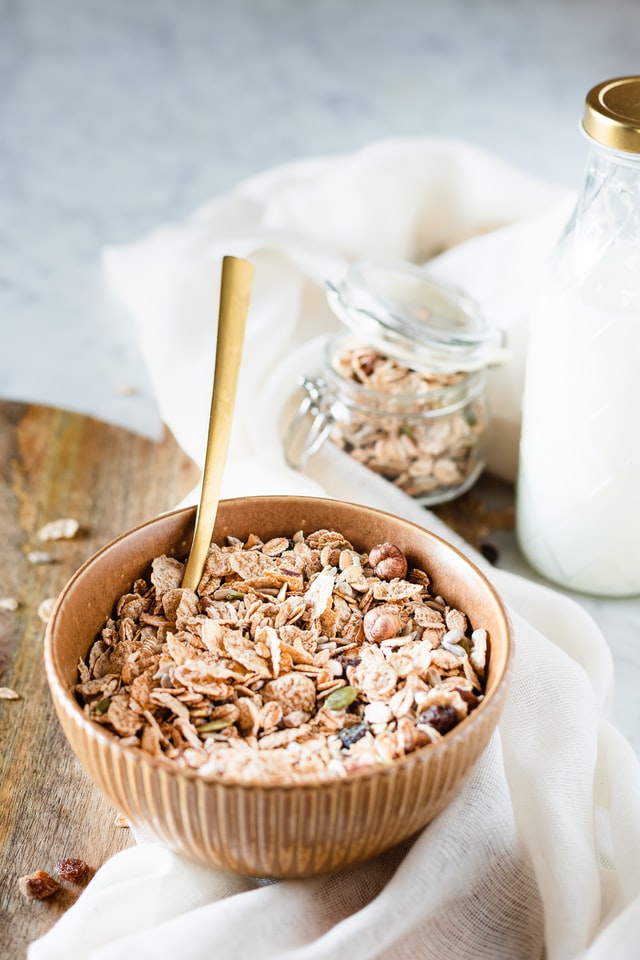
Oats are a type of whole grain that is rich in fiber. One cup of oats contains about 5 grams of fiber, which is about 20% of the daily recommended intake for adults (1). Fiber, found in oats, can help to soften stools and make them easier to pass along the digestive tract (2). What’s more, insoluble fiber helps to add bulk to stools, which can also aid in bowel movements (3). Because constipation is often caused by a lack of both soluble and insoluble fibers in the diet, oats may be an effective home remedy. For constipated individuals, incorporating oats into the diet may help to improve bowel movements.
Ginger And Mint Tea
Many people turn to ginger and mint tea when they are suffering from stomach issues like constipation. The two herbs have long been used in herbal medicine for their digestive properties. Mint is thought to help relax the muscles in the intestines, which can help to move stool along more quickly.
Ginger, on the other hand, is a well-known remedy for nausea. It is thought to work by stimulating the production of digestive juices. Combined, these two herbs make a potent remedy for constipation.
While there is no scientific evidence to support these claims, many people swear by the effectiveness of ginger and mint tea.
Figs
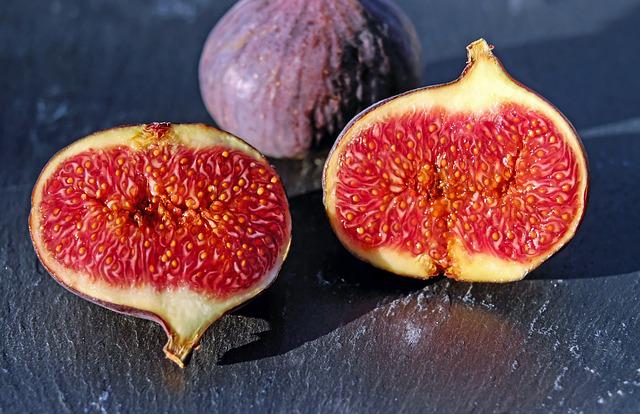
Figs are a type of fruit that is effective in relieving constipation. The high fiber content in figs helps to bulk up stool and promote regularity. In addition, the organic acids present in figs help to soften stool and make it easier to pass.
For constipation relief, it is recommended to eat two or three figs per day. Figs can be eaten fresh, canned, or dried. They can also be added to cereals, yogurt, or other dishes. If you experience it regularly, consult with a healthcare provider to rule out any underlying medical conditions.
Fybogel (Ispaghol Husk) With Water
Ispaghol is a type of plant. The seeds of that plant are often used as a natural laxative. Ispaghol husk, in particular, is thought to be an effective remedy. This type of fiber helps to bulk up stool and promote regularity.
To use ispaghol husk for constipation, mix one tablespoon of the husk with one glass of water. Drink this mixture once or twice a day for relief. If you experience any adverse effects, discontinue use and consult with a healthcare provider.
Exercise Regularly
We all know that exercise is good for our health, but did you know that it can also help to relieve constipation? When we exercise, our muscles contract, and this helps to move food through our intestines. In addition, exercise helps to stimulate the production of digestive juices, which can further aid in digestion.
Furthermore, regular exercise can help to increase the tone of your intestinal muscles, making it easier for them to move waste material through your system. So if you’re looking for a natural way to fight constipation, be sure to add some exercise to your daily routine.
Relax And Get Enough Sleep
Most people don’t get enough sleep, and it can take a toll on your body. When you’re exhausted, your body isn’t operating at its maximum capacity. You may have trouble concentrating, and memory problems, and you’re more likely to be accident-prone. Not getting enough sleep can also lead to constipation.
That’s because when you’re tired, your body doesn’t have the energy to move food through your digestive system. So if you’re constipated, make sure you get some extra rest. And if you can’t seem to get enough sleep, talk to your doctor. There may be a more serious underlying issue that requires intervention.
Drink Plenty Of Water And Fluid Intake
Water is essential for good gut health. One of the most effective strategies for treating constipation is to drink plenty of water. When the body is adequately hydrated, the intestines can move bowel movement more easily. Water also helps to add bulk to stool, making bowel movement easier to pass. Water helps to keep the intestines hydrated and aids in digestion. Make sure to drink eight glasses of water a day to stay properly hydrated.
Fybogel (Ispaghol Husk) With Yogurt
It’s a condition that all of us have probably experienced at some point in our lives, and it’s not fun. Characterized by infrequent bowel movements and hard stools. Fortunately, there are several remedies available to encourage bowel movements.
One such remedy is Fybogel (Ispaghol husk) with yogurt. Fybogel is made from psyllium husk, a soluble fiber that bulks up stool and helps to move it through the digestive system. The yogurt provides friendly bacteria that help to maintain a healthy balance in the gut. Together, these two ingredients can help to relieve constipation and restore regularity.
Tips And Tricks
Irritable bowel syndrome (IBS) is a condition that affects the entire digestive tract. Symptoms include cramping, abdominal pain, bloating, gas, diarrhea or constipation, or both.
While there’s no cure for IBS, there are ways to manage your symptoms. One of the most effective ways to do this is by making dietary and lifestyle changes.
Untreated constipation can lead to serious health complications, such as hemorrhoids, anal fissures, and fecal impaction. If you’re constipated, you may be looking for ways to get relief.
Fortunately, there are several things you can do at home to ease your constipation and get things moving again.
Severe constipation can be a sign of an underlying medical condition. If you’re constipated and nothing seems to be helping, it’s important to see your doctor. They can rule out any potential health concerns and help you find the best treatment for your symptoms.
FAQS
What is Chronic Idiopathic Constipation?
Chronic idiopathic constipation (CIC) is a type of constipation that has no known cause. It’s more common in women and people over the age of 65. Symptoms include having hard or lumpy stools, straining to have a bowel movement, feeling like you can’t empty your bowels, and having fewer than three bowel movements in a week.
What are Osmotic laxatives?
Osmotic laxatives work by drawing water into the intestine, which softens the stool and makes it easier to pass. These laxatives are available over-the-counter and include products like Miralax, Milk of Magnesia, and Citrucel.
What are stimulant laxatives?
Stimulant laxatives work by stimulating the intestine and increasing bowel movements. These laxatives are available over-the-counter and include products like Dulcolax, Ex-Lax, and Senokot.
Conclusion
Constipation is a condition that affects many people and can be quite uncomfortable. In this blog post, we discuss the symptoms of constipation, different types, and remedies for constipation. Some common remedies include drinking lemon water, consuming healthy fats, eating oats for constipation relief, drinking ginger and mint tea, and eating figs. We also recommend exercising regularly, relaxing and getting enough sleep, and drinking plenty of water. Lastly, we suggest trying ispaghol husk with water or ispaghol with yogurt to relieve constipation.
